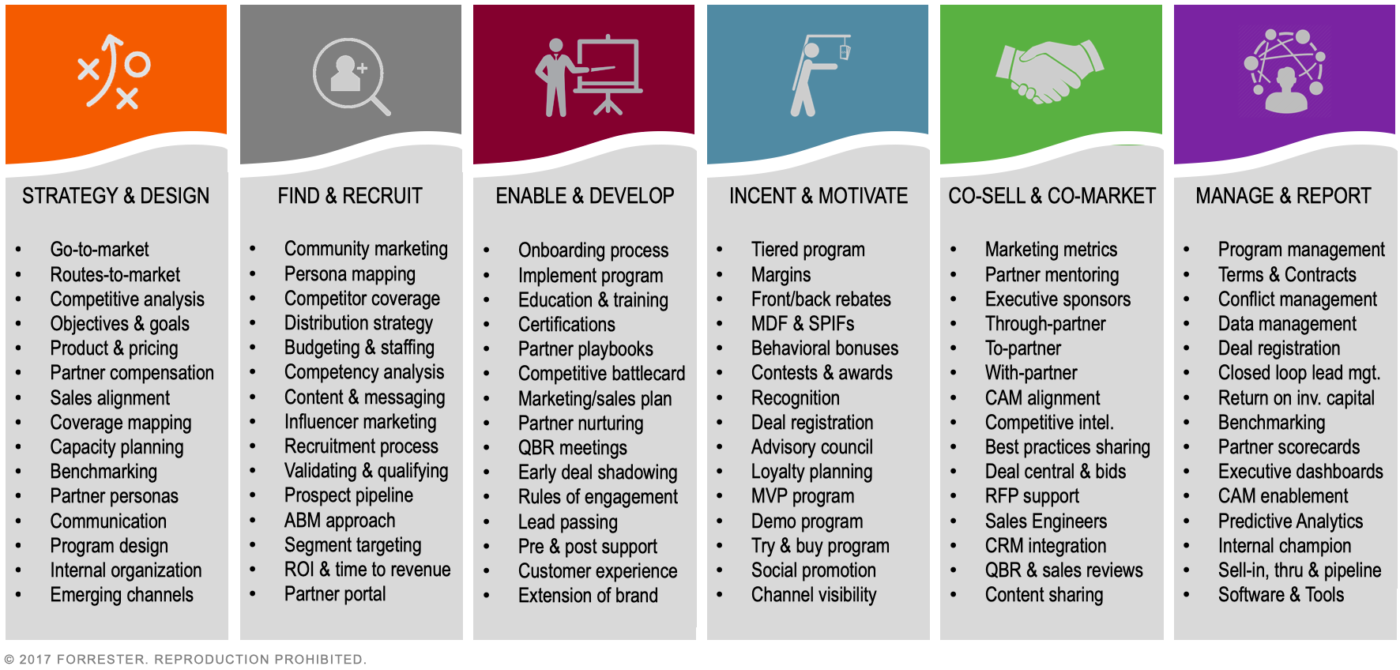What do these have in common?
- A supermarket
- A car dealership
- An insurance agency
- A movie theater
- Upwork, Catalant and other sites for hiring professionals
- A firm that provides outsourced IT services to companies
These are all examples of companies that act as a channel for another company, connecting them to customers and selling their products and services. P&G doesn’t sell Crest and Bounty directly to consumers, it sells through supermarkets. Most cars (except for Teslas) are sold through dealerships that aren’t owned by the manufacturer. Insurance is sold through agents. Movies are distributed through independently-owned theaters. Professionals worldwide get work through hiring sites. And managed service providers that provide IT services usually re-sell software, too.
The World Trade Organization estimates that 75% of global commerce is done through these indirect channels, rather than through direct sales. (Many companies use a combination of direct and indirect sales; Microsoft sells 95% of its software through partners but does have a salesforce to handle larger enterprise deals. Many insurance companies sell both direct and through agents.)
The software channel is the topic of my new Software Channel Partner Podcast available on Apple Podcasts, Google, Spotify, and wherever fine podcasts are sold. (Yes, the first four episodes all feature interviews with men, but in three of the next four I interview women software channel leaders, so that lineup of guests will look very different when you look at it a month from now.)
A channel strategy can be a great force multiplier for a business. Who could sell the products or services for your company?
Although indirect, channel sales are often less expensive than direct sales, people new to the channel often under-estimate the amount of effort that a successful channel strategy requires. More than once I’ve heard the leader of a small software company say, “Oh, let’s just get some partners to sell it for us. That’ll make our work a lot easier.”
Aside from arranging for these partner deals, though, and making them lucrative enough to be worth the effort of both the partner company and – critically – their sales people, the vendor has to work hard to stay top of mind, train channel sales reps, arrange for timely compensation, and so on.
In fact, Forrester channel analyst Jay McBain (a guest on my podcast in May) lists 90 different competencies in six categories that a full channel program requires.

So if you don’t have a channel strategy, it may well be worth it to create one. If you do have a channel program, even if you’re not in the software industry you’ll find lots of ideas in my podcast for how to bring best practices to your program.
